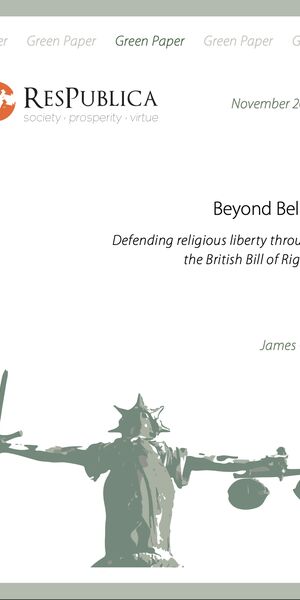
What’s next?
- A report on Christians in the UK will be launched in Parliament, presenting the results of the wide-ranging inquiry conducted by 20 parliamentarians and identifying recommendations for the Government to improve the experience of Christians in living in the UK today.
- The Government will conduct a public consultation on the Prevent strategy with a view of addressing any identified shortfalls.
- The Government will respond to the report on ‘Challenging Hateful Extremism’ produced by the Commission on Countering Extremism and identify its position on the recommendations contained in the report.
- A cross-party parliamentary group will review and recommend proposals in regard to the domestic protections of the right to freedom of religion or belief.
- Post-Brexit, the Government will need to consider whether leaving the UK has had any effect on human rights, including on the right to freedom of religion or belief. It is especially important that the Government address how it is planning to engage in or replace the new European Parliamentary initiatives on freedom of religion or belief.
Reasonable Accommodation
Reasonable accommodation is a principle that recognises that in the same way a law designed for the majority can negatively impinge upon the interests of a minority, so too can a law designed for one minority negatively impinge upon another.
The solution to this problem is to apply the law to society in general but to ask whether it conflicts with the identity of other protected characteristics. If it does, the law should then be applied to all protected characteristics in every way apart from where doing so damages another protected characteristic. In this respect, and only in this respect, the law should be applied differently to make space for and to reasonably accommodate the other protected characteristic.
Reasonable accommodation already exists in UK law in relation to disability. In other countries such as Canada, reasonable accommodation has been extended to include many protected categories such as religion, disability, gender, national origin and age. Likewise in the United States reasonable accommodation was used to accommodate religious liberty in employment law before the concept was applied to disability. What[7][8]’s more, reasonable accommodation does not necessarily have to place additional burdens on employers; for example in Ladele v London Borough of Islington Ms Ladele was willing to swap shifts with other colleagues and work unpopular hours so that she did not have to officiate in a civil partnership which she morally objected to.
The Equality and Human Rights Commission (EHRC) has previously considered the mechanism of reasonable accommodation in its guidance for employers. However, it has more recently advocated against the use of this mechanism and found in a 2016 report that the existing model addressing indirect discrimination and the balancing of rights in the workplace was sufficient. The EHRC considered that there was nothing in the law to prevent employers from accommodating religious belief voluntarily. However, such a voluntary model would introduce uncertainty regarding employees' rights and discrepancy of approach between different workplaces.
CARE has strongly argued against this position and recently made a submission to the Joint Committee on Human Rights demonstrating the inadequacies of the EHRC’s stance and the need for a formal mechanism to be put in place.
The current informal approach to religious discrimination in the workplace creates discrepancies in outcome. There is a lack of certainty as to which individuals will be granted accommodation and which will not, even if their situations are analogous. Introducing a formal mechanism would avoid this uncertainty and provide consistency in approach, ensuring religious beliefs are not arbitrarily limited.
The JCHR concluded in their report that the Government should introduce a legal test to ensure freedom of religion and conscience are reasonably accommodated and to protect the right to freedom of belief.
Counter-Extremism Measures
In October 2015, the Government released its “Counter-Extremism Strategy.” However, as extremism is not defined in the document and the strategy does not focus exclusively on violent extremism, the proposed strategy is highly problematic. The strategy focuses on promoting so-called “British values” in an attempt to defeat violent and non-violent extremism. However, as the “British values” include the commitment to quality and tolerance, this is often erroneously interpreted as accommodating an obligation to promote equality for the price of religious freedom and living in accordance with religious values. Consequently, such an approach targets religious communities.
The strategy proposed a new mechanism of “Extremism Disruption Orders” (EDOs) that would allow the police to apply to the High Court for an order restricting “harmful activities of the most dangerous extremist individuals.” However, without a clear definition of extremism and without focusing on violent extremism only, such a proposal is a slippery slope leading to targeting religious groups that may have views erroneously seen as contrary to the “British values.”
The Government’s strategy for countering extremism is constantly evolving. We support the initiative to tackle extremism, but care and nuance is required in order to protect freedom of religious belief.
Sunday Trading
CARE is committed to upholding the centrality of family life. Changes to Sunday Trading have a direct impact on this as they negatively affect ‘time off in common’.
The health of our economy depends on both its social and natural environment. In the same way one can undermine long term growth prospects by not caring for the natural environment, so too can one damage long term growth by not caring for the social environment. This is a particular concern when one considers
CARE was part of the Keep Sunday Special Campaign that opposed the initial change in the law back in 1994, along with representatives of trade unions, churches, political parties, private businesses, other faiths and those of none.


